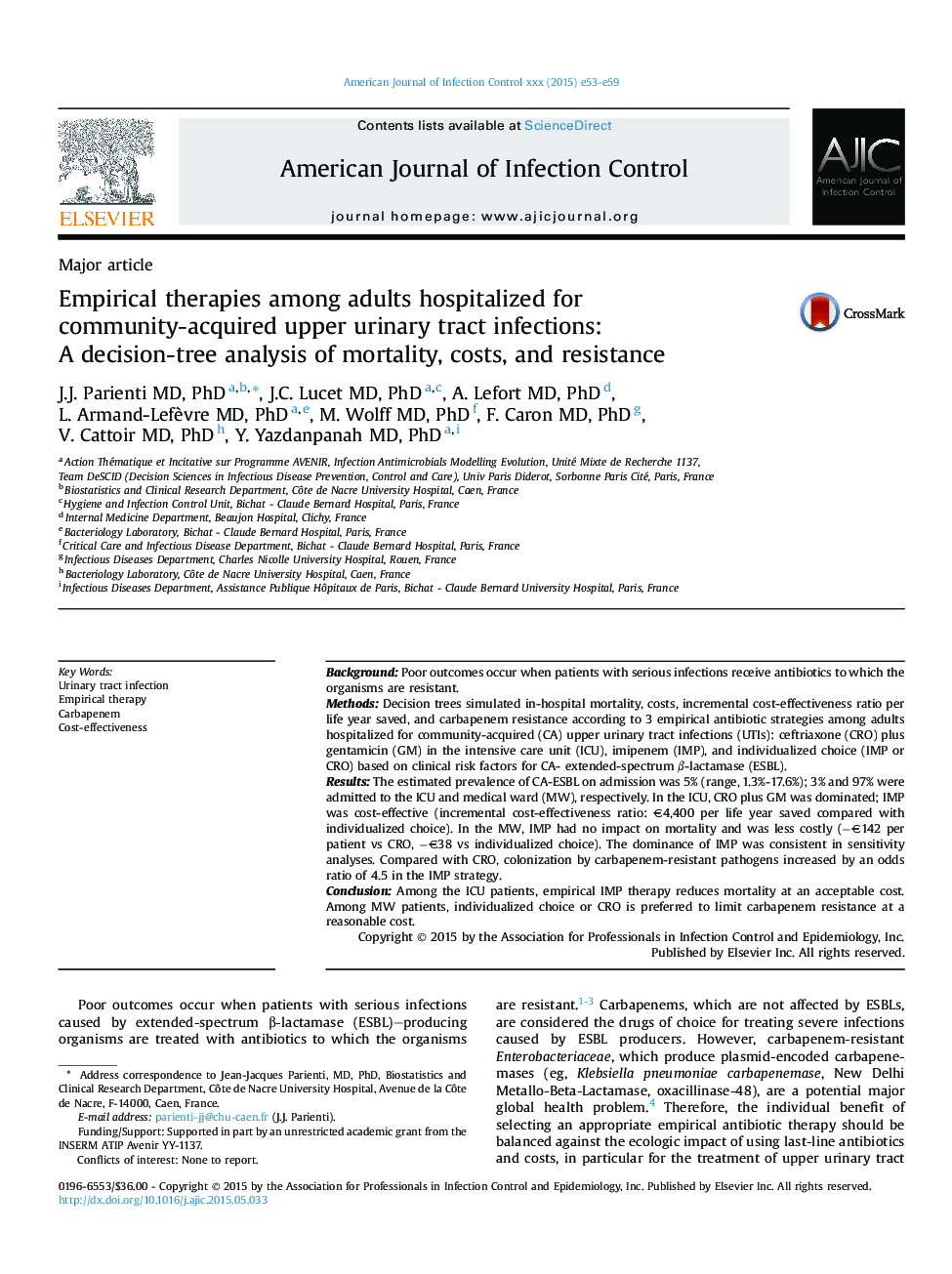| کد مقاله | کد نشریه | سال انتشار | مقاله انگلیسی | نسخه تمام متن |
|---|---|---|---|---|
| 2636743 | 1563468 | 2015 | 7 صفحه PDF | دانلود رایگان |
• We examined the consequences of empirical therapies for community-acquired urinary infection.
• Imipenem was cost-effective for severe infections.
• Inappropriate empirical therapy did not increase mortality for nonsevere infections.
• Severity of urinary infections should be considered before using imipenem.
BackgroundPoor outcomes occur when patients with serious infections receive antibiotics to which the organisms are resistant.MethodsDecision trees simulated in-hospital mortality, costs, incremental cost-effectiveness ratio per life year saved, and carbapenem resistance according to 3 empirical antibiotic strategies among adults hospitalized for community-acquired (CA) upper urinary tract infections (UTIs): ceftriaxone (CRO) plus gentamicin (GM) in the intensive care unit (ICU), imipenem (IMP), and individualized choice (IMP or CRO) based on clinical risk factors for CA- extended-spectrum β-lactamase (ESBL).ResultsThe estimated prevalence of CA-ESBL on admission was 5% (range, 1.3%-17.6%); 3% and 97% were admitted to the ICU and medical ward (MW), respectively. In the ICU, CRO plus GM was dominated; IMP was cost-effective (incremental cost-effectiveness ratio: €4,400 per life year saved compared with individualized choice). In the MW, IMP had no impact on mortality and was less costly (−€142 per patient vs CRO, −€38 vs individualized choice). The dominance of IMP was consistent in sensitivity analyses. Compared with CRO, colonization by carbapenem-resistant pathogens increased by an odds ratio of 4.5 in the IMP strategy.ConclusionAmong the ICU patients, empirical IMP therapy reduces mortality at an acceptable cost. Among MW patients, individualized choice or CRO is preferred to limit carbapenem resistance at a reasonable cost.
Journal: American Journal of Infection Control - Volume 43, Issue 9, 1 September 2015, Pages e53–e59
